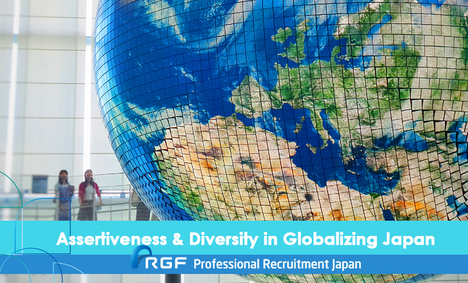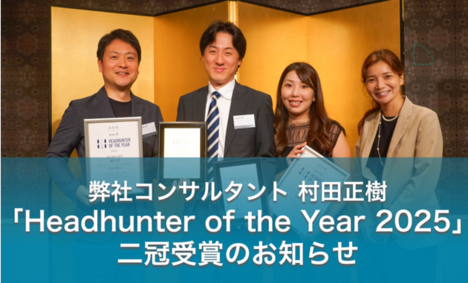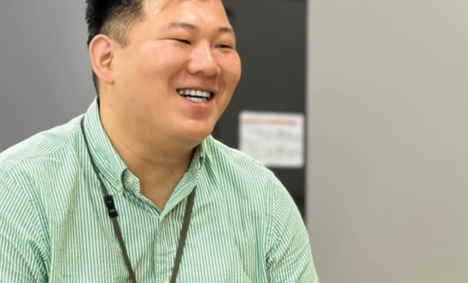
In the 2nd part of our blog series, Simon Elsom, Director of RGF Professional Recruitment’s Back Office Division, sat down with Mikako Suzuki, President of AT Globe Corporation, and discussed the common misconceptions about Foreign Capital Firms in Japan.
Mikako Suzuki, author of “やっぱり外資系! がいい人の必勝転職AtoZ”, has been working in the Human Resources (HR) industry for 25 years.
Since she has witnessed first-hand the development of Japanese companies and foreign capital firms, we wanted to know if she perceived any striking differences between the two.
She asserted that foreign capital firms immediately recognize and promote employees who have directly contributed to a company’s growth.
Its counterpart, Japanese companies, are more focused on loyalty and life-long employment (終身雇用). Thus, promotions tend to take a bit more time.
Fortunately, now, more and more Japanese enterprises are starting to adopt global business strategies and policies.
Yet unfortunately, the misconceptions about foreign capital firms still pervade the mindset of most Japanese professionals.
After interviewing over 10,000 people and working in the field of HR for 25 years, Ms. Suzuki was able to consolidate the top misconceptions associated with foreign capital firms.
Are foreign capital firms quick to lay-off their employees?
This is not true. Based on my experience, yes, foreign capital firms, like all other companies, can let go of employees but they have a set procedure they need to comply with.
Most of these foreign capital companies actually offer a three-month performance improvement program whenever an employee is underperforming.
And on top of that, these companies also conduct one-on-one interviews every month to open communication between employees and senior management.
Is English a primary requirement?
Japanese professionals should not immediately dismiss working for a foreign capital firm because of fears that their English level might not be sufficient enough to ace the job interview and perform well when hired.
To be able to perform well, yes, it is true that English is required to work for a foreign capital firm but the proficiency level varies from function to function. It could be TOEIC 600, TOEIC 700… it really depends.
As for the job interviews, candidates should make sure to read their resume before the interview. Don’t forget to prepare to explain each position in English.
In order to do this, try to come up with three potential questions per position and practice answering this in English.
Besides the usual questions asked during interviews, competency and behavior-based questions are now increasingly becoming more common so I would also advise that you try and prepare to answer those in English.
If you’re interested to work for a foreign capital firm, don’t be discouraged if you think your English level isn’t enough.
I would advise you to establish a connection with a recruiter as these professionals are adept at judging your market value and matching you with the right job.
They receive tons of job opportunities every day, each with different requirements, and one of them could be a perfect match for your technical qualifications, personality, and language proficiency.
Is the work culture too aggressive?
Some functions do require a certain level of assertiveness to succeed whether they be under a Japanese company or a foreign capital firm.
So if you’re applying for that position or if you will be working alongside professionals that need to possess that type of characteristic, you just need to have the right attitude.
Some Japanese professionals might think that foreigners working in foreign capital firms are too aggressive and straightforward.
But all you need to work effectively with them is to be capable of logically formulating and asserting your own opinions.
Work culture, all factors considered, varies from company to company and you can never fully generalize nor dichotomize them.
Just remember that despite the different personalities in any given work environment, everybody in the organization is working together towards a common goal.
All companies have a clear Mission and Vision and this will closely mirror the ideal work culture companies are trying to adopt.
Unfortunately, most professionals tend to ignore it when applying for jobs.
Besides the Mission and Vision, there are a lot of other ways to identify corporate culture so you can determine if you are a good fit with the company you’re interested in.

Working at a global company has many advantages, not only for those who want to work globally and those who want to make use of their language skills, but also for people who strive to Unleash their Potential seek their own potential and have a healthy work-life balance.
RGF Professional Recruitment Japan supports the recruitment hiring activities of many of the top domestic and foreign capital companies in Japan. Various excellent companies including foreign and Japanese global companies located in Japan. Therefore, as a result, we can introduce the best career options for each person.to suite all types of career profile.
If you want to work in a global environment or globally, want to work in a place where you can perform more, or want toto a higher level and expand your career options in the future, please contact us. Our experienced consultants will do their best to support your career growth.








